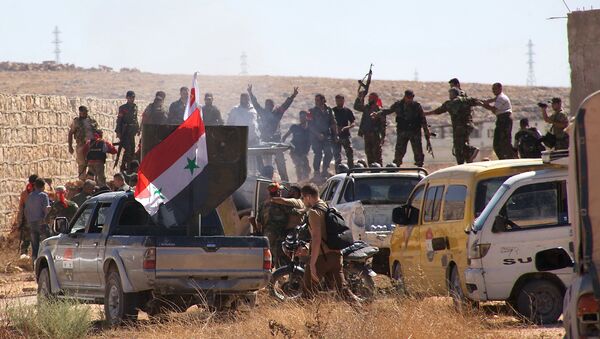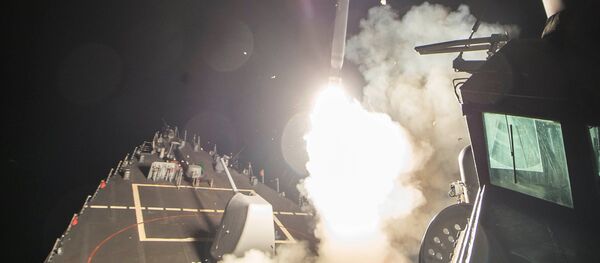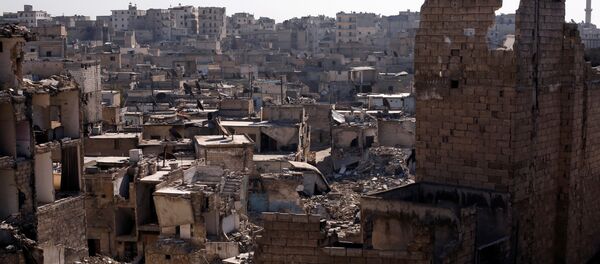The complex has recently begun to empty again as the refugees have started to return to their homes as a result of the peace process in the country.
"As many as 1,500, even 2,000 families have lived here. Now there are 75," the camp’s commandant Haidar Mashi said. According to him, a lot of refugees were able to return to their homes after the liberation of Aleppo from terrorists.
"The inhabitants of our camp are currently waiting for the liberation of the Idlib Governorate, which will allow them to leave," he added.
"We were living peacefully together, Muslims and Christians. Then the militants came and began to divide everyone into "us" and "them." People started to run away, 360 families from our villages have lived in refugee camps," the local Sheikh Iad Youssef Hazal said. According to him, the Syrian army supported by Russian aerospace forces subsequently managed to expel the Islamists and people began to return to the town and do repair work.
We meet one of the returnees, Ramez Badia Slim, in the village of al-Hamboushi. The militants slaughtered the man’s wife, father, aunt and three brothers. Ramez and his two children managed to escape to the sea coast, where they have lived in the camp for eight months. Now they are back home.
"I had a big house because I had a big family," the man says while showing the ruins of his former home. Ramez and his children are now living in a small house nearby which also requires repairing.
According to Head of the Russian Defense Ministry's Center for Syrian Reconciliation Lt. Gen. Alexey Kim, the situation concerning refugees and displaced persons in Syria is changing for the better.
"People are returning to their homes, they believe in the Reconciliation Center, they believe in government and I hope that the peace process will continue," he said. According to Kim, during 14 months of the Center’s operation, it ensured the return of 19,000 people to their homes. On Thursday, the Center ensured the return of 41 families, including 35 children.
"We have almost ceased providing assistance in the camps, we are going purposefully to the settlements, to which the highest number of people have returned. Of course, there are still camps operating, particularly on the territory of Manbij, Afrin. We supply aid mainly to the refugee camps in these regions. However in other provinces, the aid is provided particularly to the inhabited areas liberated from the militants," Kim said.
"As a rule, we deliver humanitarian aid and provide medical care to settlements, which are liberated from the militants. The great work is carried out ahead of this. The Center’s officers first go to the town, determine the number of people living there, and the number of people who need medical assistance. Then the humanitarian cargo is put together and sent to the villages. We distribute the aid on an individual basis, every person receives an individual package with products," the Center’s head explained.
According to Kim, during April the Reconciliation Center has carried out 76 humanitarian actions and ensured the transportation of seven UN humanitarian convoys. "A total of 1057 humanitarian actions were organized during the center’s operation," Kim added.





